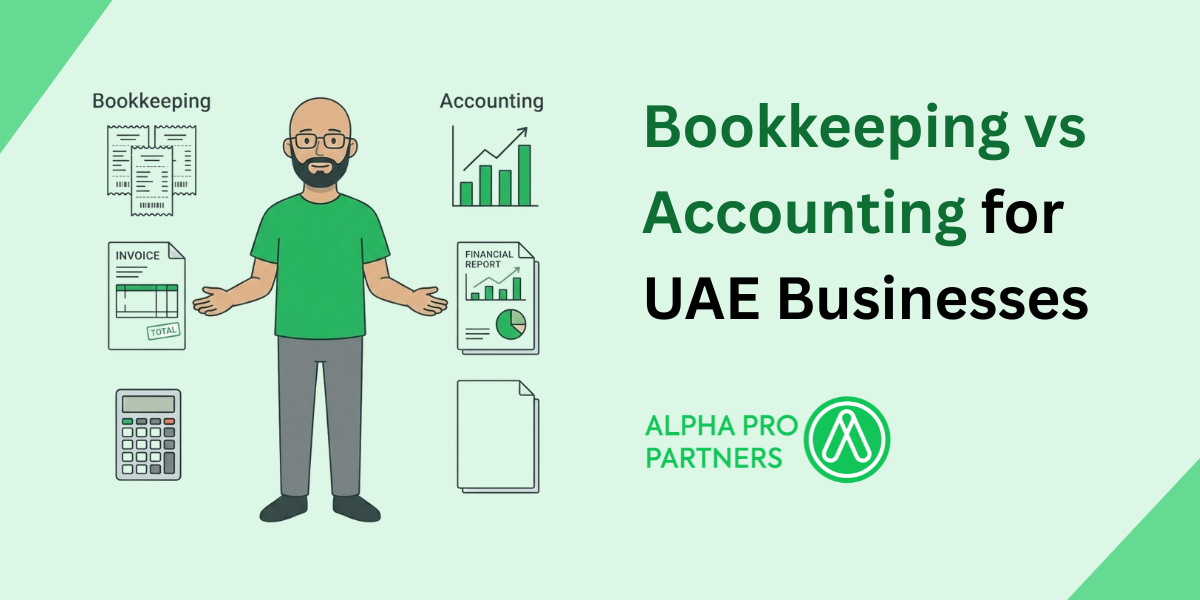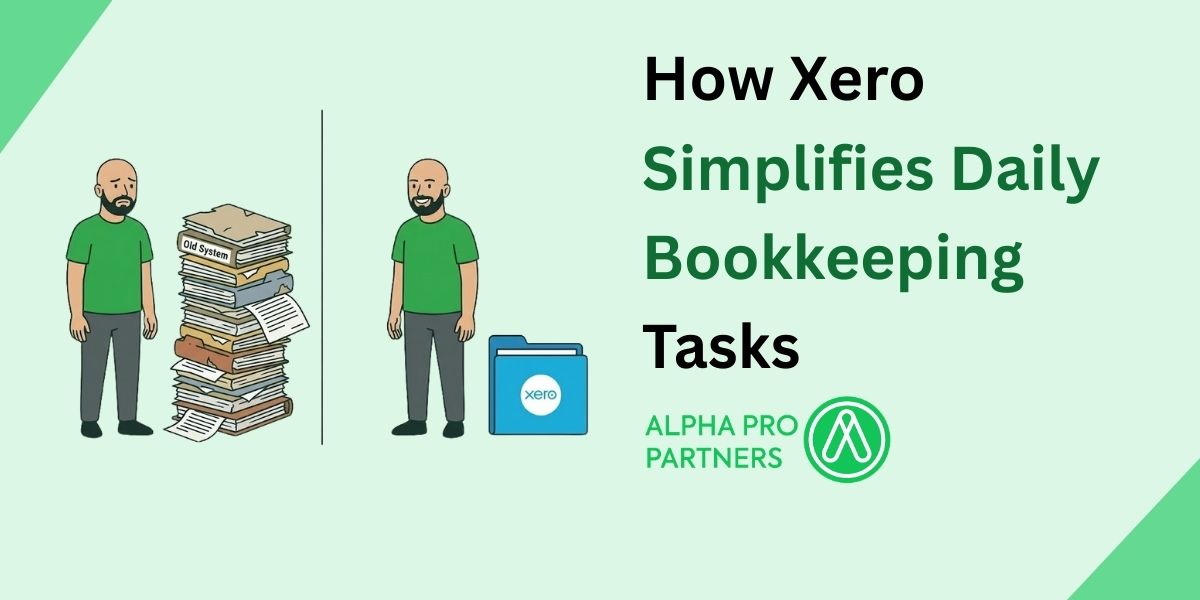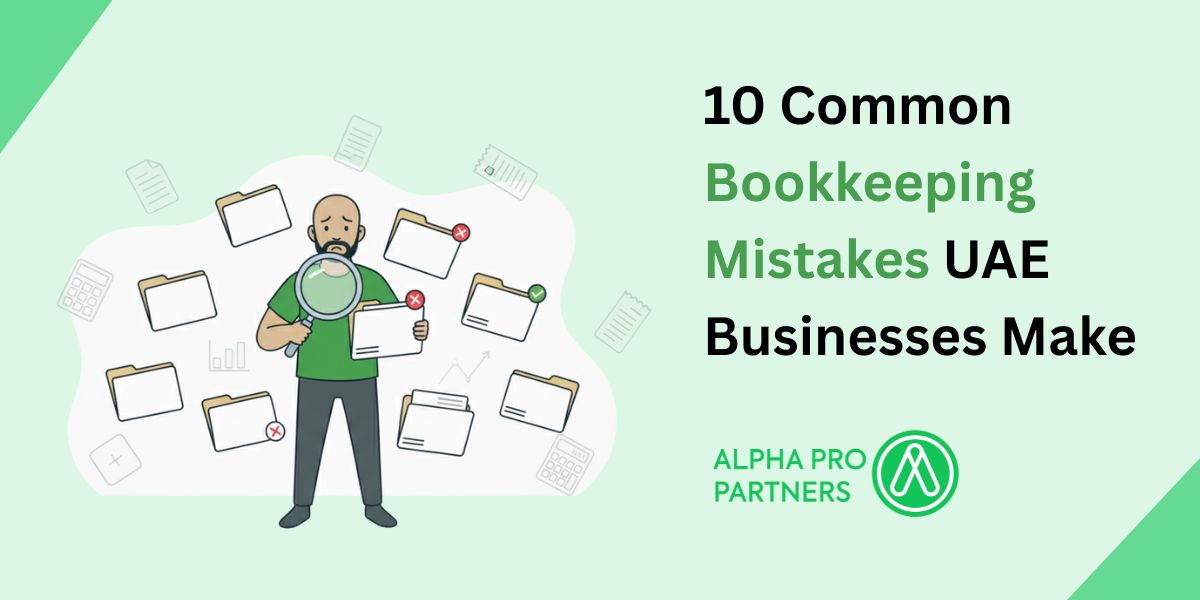Essential Accounting Practices Every UAE Small Business Should Know

Running a business in the UAE? Especially a small one? Then you already know that things can go sideways fast, especially your finances. Accounting might sound dry or, let’s be real, downright boring for some people. But it's actually your best friend. Your safety net. Your daily gut check. It keeps your money in check, your records tidy, and your future bright. No need for complicated spreadsheets or jargon. Just stick to the essentials.
So, let’s dig in.
What’s Accounting, Really?
Accounting is your business’s memory. Your timeline of every financial move. Every sale. Every cost. Each payment made. Each bill received. It's numbers with a story: what came in, what went out, and what stayed put.
In the UAE, tidy records aren't just helpful. They're required. Sloppy books can get you penalized. Or worse, audited. And if you're thinking, "I'll sort it out later," just remember: later has a way of showing up with a fine.
Accurate books build trust. You’ll sleep easier. You’ll make smarter moves. And if you ever talk to an investor or bank, your neat financials will speak volumes.
The Golden Rules of Accounting
These are the bread and butter. The ones everyone talks about:
1. Debit what comes in, credit what goes out
This rule works for real accounts. Think assets. Things you own.
2. Debit the receiver, credit the giver
This is for personal accounts. People, businesses, and banks.
3. Debit expenses and losses, credit incomes and gains
This applies to nominal accounts. Basically, your money flow.
By pairing the right rule with the right account type, you keep things structured. It's how professional accountants do it. And you can, too.
Understanding Account Types
Let's break it down even more:
Real Accounts
These deal with physical or intangible property. Buildings, land, machinery, trademarks, bank balances, and goodwill. If it exists and you own it, it’s a real account. Use Rule 1 here.
Personal Accounts
These cover people and entities you do business with. Think clients, vendors, banks. If you’re interacting with a person or business, it falls here. Use Rule 2.
Nominal Accounts
This is where you track earnings and spending. Revenue, salaries, utility bills, rent, and so on. All the moving parts that affect your profit margin. Use Rule 3.
Mix these up? You're going to create some accounting confusion. Reports won’t make sense. Numbers won't match. And regulators might start raising eyebrows.
Why It Matters for Small Businesses in the UAE
Let’s get real. Running lean? You can't afford accounting mistakes. The UAE expects you to get your numbers right. Even if you’re a solo operation.
And now with corporate tax in the mix, there's even more at stake. Late VAT filings, misreported income, or untracked expenses can bring financial penalties and unnecessary headaches.
Tidy records also mean opportunity. Whether you're seeking a loan or investor, neat financials speak louder than any pitch. Banks want clarity. Investors want confidence. Clean books give you both.
More Accounting Concepts That Help
Understanding a few extra principles goes a long way:
Matching Principle
Link costs to the revenues they generate. Simple. If you earn income, show the expense that helped you earn it.
Conservatism Principle
Always err on the side of caution. Record expected losses. Don't count wins until you’ve locked them in.
Revenue Recognition Principle
Don't log income until it's really yours. Promises don’t pay bills.
These aren’t abstract theories. They directly impact how you record and view your business performance.
Benefits of Proper Accounting
Let’s go straight to the perks:
- You know where your money is
- It’s easier to file VAT and taxes
- You stop guessing and start knowing
- Your decisions get sharper
- No mystery losses or "where did that money go" moments
- You can spot trends before they hit you
- Your spending becomes intentional, not reactionary
- Stakeholders take you seriously
With accounting, you’re not just running a business, you’re managing one.
Should You Hire an Accountant?
You could. Especially if you’re swamped. Hate spreadsheets? That’s reason enough.
In the UAE, professional accountants don’t just balance books. They:
- Set up accounting systems from zero
- Handle VAT filings on schedule
- Sort payroll accurately
- Prep you for audits before they’re even scheduled
Alpha Pro Partners is a standout. They've helped tons of small businesses across the Emirates get their accounting right.
Prefer Doing It Yourself?
Fair enough. You want control. Maybe you're just starting out. Good news, UAE-friendly software makes it easier than ever:
- Send quotes and invoices
- Record expenses
- Automate bank feeds
- Generate tax-ready reports
- Track VAT accurately
- Set budgets
- Access from your phone
Most platforms have support in Arabic and English. So, even if you’re not a numbers person, you’re covered.
Risks of Ignoring Accounting Practices
Thinking of skipping all this? Here’s the downside:
- You’ll miss tax deadlines
- VAT returns might be wrong
- Fines could pile up
- You’ll have zero clarity on cash flow
- Investors won’t take you seriously
- You’ll struggle to plan growth
- Mistakes during audits
Messy records aren’t a temporary issue. They slow your growth. And they could hurt your reputation.
When to Level Up Your Accounting
Even if things start small, growth sneaks up on you. Here are signs you need more help:
- Payroll is a mess
- You’re behind on taxes
- Financial statements confuse you
- Every week ends with new errors
Wrapping Things Up
Accounting isn’t about crunching numbers. It’s about clarity. Structure. Control. Whether you’re running a food truck in Sharjah or a marketing agency in Dubai, proper accounting helps you thrive.
Still not sure where to start? Contact Alpha Pro Partners. We will break it down in plain terms and help you set up a system that works for you.
Frequently Asked Questions (FAQ)
What are the three golden rules of accounting?
- Debit what comes in, credit what goes out.
- Debit the receiver, credit the giver.
- Debit expenses and losses, credit incomes and gains.
What’s the difference between real, personal, and nominal accounts?
Real accounts relate to assets. Personal accounts are tied to individuals or organizations. Nominal accounts cover income and expenses.
Are these accounting rules mandatory for UAE businesses?
They are best practices. And they help you stay compliant with tax laws.
Can I handle accounting on my own?
Yes, if you're organized and use the right tools. But once you grow, get help.
What’s the risk of ignoring proper accounting?
Expect fines, confusion, and missed opportunities.
What can Alpha Pro Partners do for me?
Everything from bookkeeping and VAT filings to strategic advice and audit prep.
Still curious? Contact us now for a free consultation with our team of experts and save months of future stress.

.webp)


.webp)


.webp)










.webp)
.webp)


.png)
.png)
.png)
.png)
.png)

.png)
.png)



.png)
.png)





.jpg)


.jpg)





.png)
.png)






.png)


